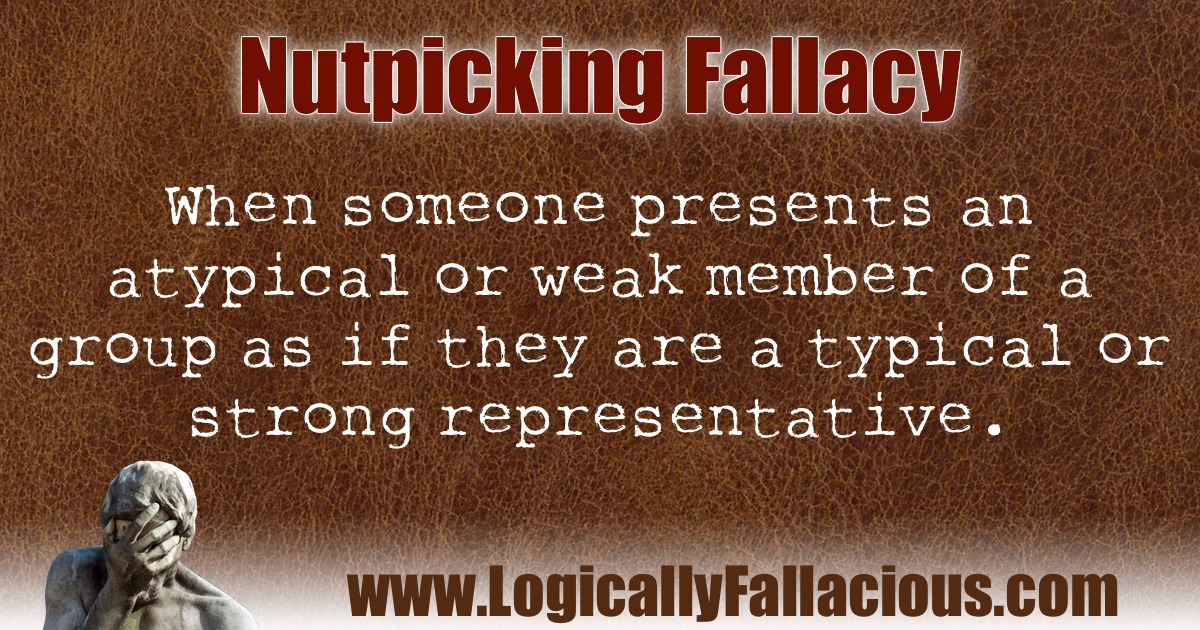Description: When someone presents an atypical or weak member of a group as if they are a typical or strong representative.
Logical Form:
Person X is presented as a typical or strong representative of group Y.
Person X is actually an atypical or weak member of group Y.
Therefore, Person X is seen as a typical or strong representative of group Y.
Example #1: Politically ideological individuals on social media consistently post quotes, articles, and stories about the heroes on their side of the political spectrum and villains on the other side in an attempt to influence public perception of their political adversaries. The implied message is, “See, this is what the liberals, are like and this is what the conservatives are like.”
Example #2: After the killing of George Floyd, the police officer responsible has been presented by those calling to defund the police as a strong representative of the police in the United States. This representation triggers people’s availability bias resulting in an inaccurate view of police in general. At the same time, FOX News will report on hero cops who save babies, get killed in the line of duty, and replace broken refrigerators for senior citizens. Neither of these portrayals is typical or a strong representation of police in general.
Exception: As Stephen Woodford points out in his video in the reference, sometimes “nuts” permeate the group to the extent that the “nut” is typical of the group. An example is flat-earthers. I say that unapologetically.
Variation: A variation of this fallacy is overextended outrage. Essentially, this is like picking the nuts for the purpose of expressing or inciting outrage toward an entire group.
Fun Fact: I have heard a couple of people refer to the cherry picking fallacy as the nutpicking fallacy. Review the cherry picking fallacy and you will see that there are notable differences.
